Search
Remove Ads
Advertisement
Summary 
Loading AI-generated summary based on World History Encyclopedia articles ...
Search Results
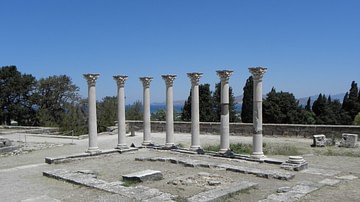
Definition
Kos
Kos (Cos) is a Greek island in the south-east Aegean, part of the Dodecanese (ancient Sporades) group which prospered in antiquity due to its location on trade routes between Egypt, Syria, Cyprus, and Anatolia. Settled from the Bronze Age...

Image
Temple of Apollo, Asclepeion, Kos
The Roman-built temple of Apollo in the Asclepeion sanctuary of Kos, 2nd century CE.
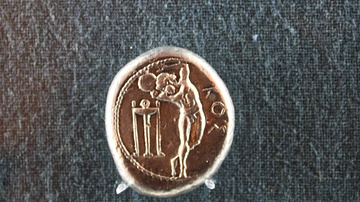
Image
Tridrachm, Kos
A silver tridrachm from Kos. A discus thrower (diskobolus) and tripod. 5th century BCE. (Numismatics Museum, Athens)
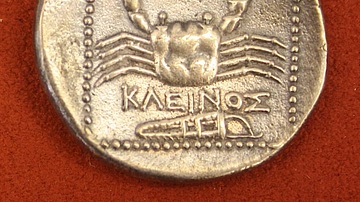
Image
Silver Tetradrachm, Kos
A silver tetradrachm from Kos, 300-190 BCE. O: Hercules, R: Crab. (Alpha Bank Numismatics Museum, Kerkyra, Corfu)
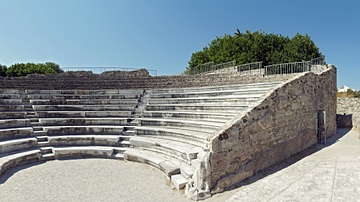
Image
Odeion of Kos
The restored Roman Odeion of Kos, 1st-2nd century CE.
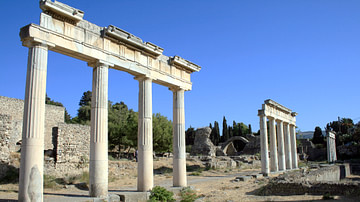
Image
The Hellenistic Gymnasium, Kos
The remaining columns of the Hellenistic period gymnasium, Kos.

Definition
Hippocrates
Hippocrates was born on the Greek island of Kos in the 5th century BCE, and he became the most famous physician in antiquity. He established a medical school on the island, wrote many treatises on medical matters, and is, through his systematic...

Definition
Asclepius
Asclepius was the ancient Greek god of medicine, and he was also credited with powers of prophecy. The god had several sanctuaries across Greece; the most famous was at Epidaurus which became an important centre of healing in both ancient...
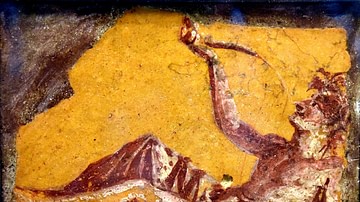
Article
Wine Culture in the Hellenistic Mediterranean
The culture of drinking wine was enjoyed throughout the Mediterranean world, and what is true now was true in antiquity, too: wine is always good business. The Hellenistic Period (c. 335-30 BCE), between Alexander the Great and Cleopatra...

Definition
Silk Road
The Silk Road was a network of ancient trade routes, formally established during the Han Dynasty of China in 130 BCE, which linked the regions of the ancient world in commerce between 130 BCE-1453 CE. The Silk Road was not a single route...